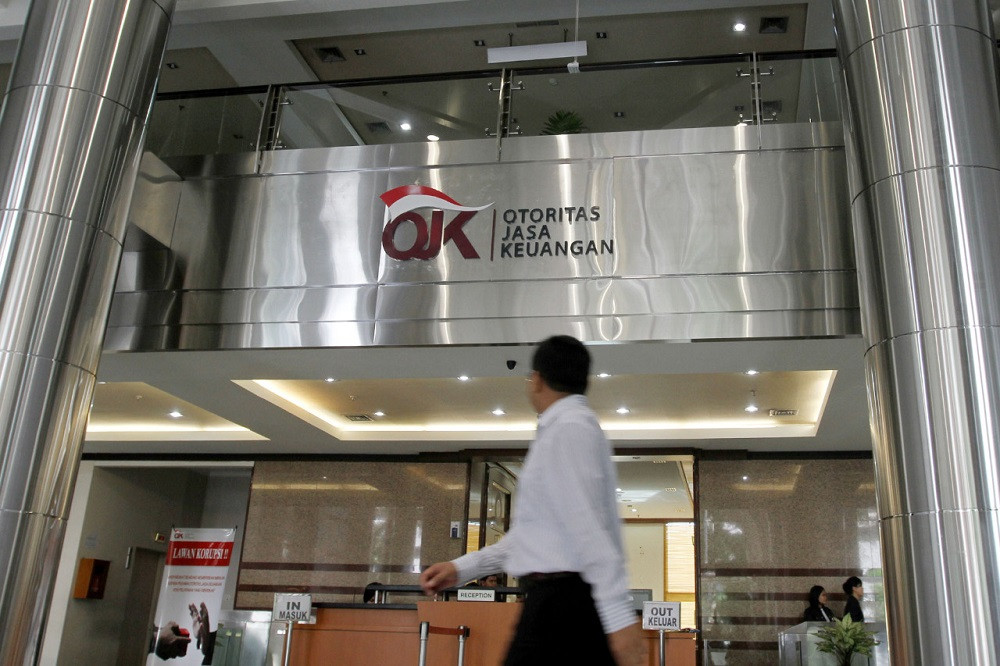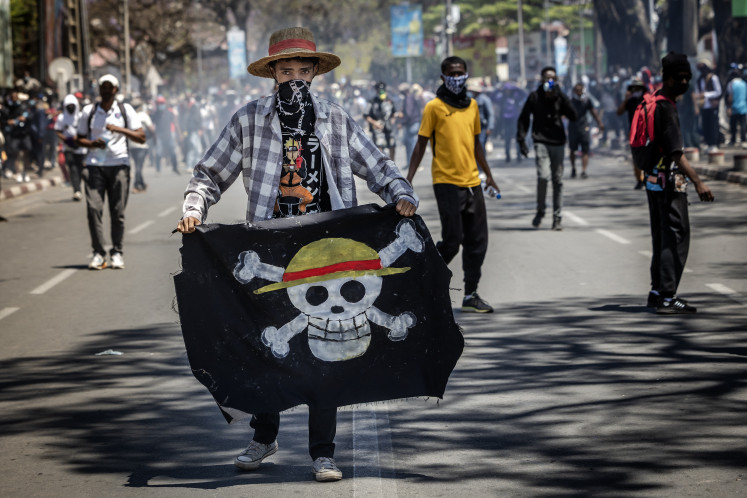Popular Reads
Top Results
Can't find what you're looking for?
View all search resultsPopular Reads
Top Results
Can't find what you're looking for?
View all search resultsWho should supervise savings and loans cooperatives in Indonesia?
A unique system that combines two supervisory regimes could be the breakthrough solution to cracking down on pseudo cooperatives in the financial services sector.
Change text size
Gift Premium Articles
to Anyone
T
he systemic problem of the cooperative business sector relates to very weak supervision, and needs breakthrough policies and strategies for strong law enforcement. Many pseudo cooperatives have cost the public trillions of rupiah in lost savings in the last decade.
Cheating has occurred at the grassroots level, such as at the cooperative businesses Cipaganti Karya Guna Persada and Langit Biru. From 2008 to May 2014, the two cooperatives have cheated their customers of Rp 3.2 trillion (US$228,500).
The draft bill on development and strengthening financial sector reform that the government is now preparing should therefore spur the revision of several prudential regulation and supervision (R&S) for savings and loans (S&L) cooperatives.
Government Regulation No. 9/1995 stipulates that S&L cooperatives are restricted from transacting with nonmembers, but may still transact with nonmembers if the latter agree to become a candidate member within a specific time frame, and then become a full member. This proviso was often misused by several large S&L cooperatives to transact with nonmembers who were dubbed “candidate members” without a limited time frame to thus mimic the microfinance approach, which is basically debt-based.
The absence of good supervision by the Cooperatives and Small and Medium Enterprises (SMEs) Ministry resulted in many S&L cooperatives becoming pseudo cooperatives that have failed to repay customer funds, hence damaging the image of the cooperatives movement.
We suggest a two-tiered R&S institutional framework. First, the Financial Services Authority (OJK) should regulate and supervise medium sized and large S&L cooperatives at the national level. The OJK will specify the regulatory guidelines and delegate actual regulation to the Cooperatives and SMEs Ministry and regional governments, but any draft regulations by these government institutions must be approved by the OJK to ensure nationwide consistency in the prudential management of S&L cooperatives.
There are several reasons why the OJK should be the supervisory authority for medium sized and large S&L cooperatives.
Banks, rural banks (BPRs), multifinance companies, peer-to-peer (P2P) lenders and S&L cooperatives have similar activities offering similar products and services (e.g. savings accounts, loans and checking accounts).
These financial institutions provide services for individuals, and many provide banking services as well. Larger S&L cooperatives are more like commercial banks and should thus be subject to equal treatment under the OJK’s supervision.
The policy should create a level playing field for financial cooperatives (FCs) among financial services providers and prevent regulatory arbitrage. Depository members of financial cooperatives should be protected through prudential R&S and the enforcement of these regulations.
The OJK can also impose levies or charge fees to medium sized and large S&L cooperatives. It is growing increasingly common for supervised institutions to pay for supervisory services. On the other hand, neither the Cooperatives and SMEs Ministry nor regional governments have such flexibility in either imposing levies or recruiting employees.
A system with two different supervisory regimes could potentially solve the problem of low-quality supervision under the cooperatives ministry, by placing large S&L cooperatives under the OJK’s supervision.
While we agree that many differences remain between S&L cooperatives and other deposit-taking institutions, and that cooperatives are nonprofit businesses that only serve their members, this latter statement may be misleading.
S&L cooperatives need to make a profit to run, sustain and grow their business. In addition, they must implement good corporate governance, international accounting standards and transparency, and be more entrepreneurial to survive in the business world and gain people’s trust. Under the regulation and supervision of the OJK, medium sized and large S&L cooperatives could learn how to implement sound business practices.
If we place S&L cooperatives under the OJK, they have to comply with prudential regulations that follow international best practices, no different from any other deposit-taking institution. The OJK will create a level playing field for all deposit-taking institutions, including medium sized and large cooperatives and prevent any regulation arbitrage.
The most important thing is that the OJK has all the necessary resources and the DNA as a financial supervisory agency in order to detect any financial misconduct, and as early as possible.
Learning from other countries, a paper by R. Coelho, J.P. Svoronos, J.A. Mazzillo and T. Yu titled “Regulation and supervision of financial cooperatives” (FSI Insights, Jan.10, 2019) indicates that implementing a tiered R&S system and placing financial cooperatives under a financial supervisory agency is common practice around the globe.
Various structural models are used to supervise different types of financial institutions. In Australia, the Australian Prudential Regulation Authority (APRA) is responsible for supervising smaller financial institutions. In China, the supervision of rural small and medium-sized financial institutions falls under the China Banking and Insurance Regulatory Commission (CBIRC). In Ireland, a division within the Central Bank of Ireland supervises financial cooperatives (FCs). In Brazil, a specific unit within the Central Bank of Brazil supervises FCs and nonbank financial institutions. In other countries like Kenya and the United States, a specific agency is responsible for supervising FCs.
To conclude, we suggest that a breakthrough system comprised of two different supervisory regimes could resolve the current problem of low-quality supervision of S&L cooperatives in Indonesia.
***
The writer is an official at the Finance Ministry. The views expressed are personal.










